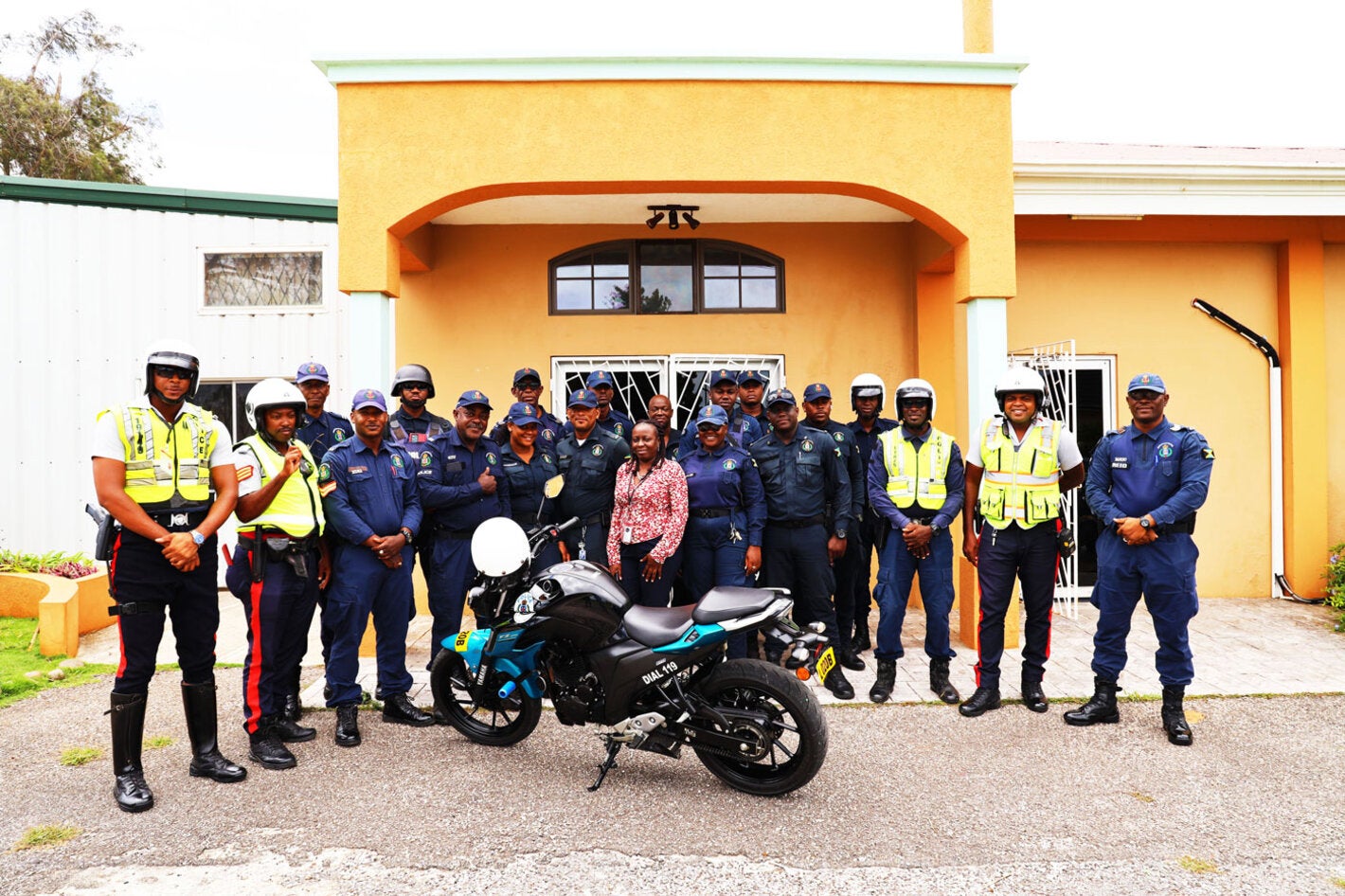
Kingston, Jamaica, 24 September 2024 (PAHO) – With over 400 lives lost annually on the nation’s roads, the Government of Jamaica, in collaboration with the National Road Safety Council and various local and international partners, is intensifying efforts to curb the rising tide of traffic-related injuries and fatalities.
In a significant step to acquire immediate information for action, Jamaica is introducing a web-based accident analysis system, iMAAP. The Pan American Health Organization/World Health Organization (PAHO/WHO), with the support of the United Nations Road Safety Fund (UNRSF), is working with the National Road Safety Council to provide introductory training to traffic officers. The training is facilitated by the Road Safety Unit (RSU) of the Island Traffic Authority (ITA), and the Public Safety and Traffic Enforcement Branch (PSTEB) of the Jamaica Constabulary Force (JCF).
As part of this initiative, over 200 police officers were trained at four sites across Jamaica from August to September 2024. This training is one of the key activities of the Government of Jamaica’s programme to meet the 2030 goal of reducing road traffic deaths and injuries by at least 50%. iMAAP, a software system, is designed to accelerate the analysis of traffic data into recommendations and actions.
Historically, road crash data collection has been mainly paper-based. The introduction of iMAAP marks a pivotal shift toward comprehensive digitalization of traffic incidents. This transition is expected to enhance data storage, analysis, and reporting, ultimately leading to better policy development and program management. To support this upgrade, the project has also donated 115 tablets with pens and hard cases, valued at approximately $7,500,000, to the Road Safety Unit.
Inspector Robin Williams of PSTEB, a co-facilitator of the training, in expressing his gratitude, stated that “This software will eliminate delays in transferring information, allowing for real-time updates to the national crash database accessible by all relevant stakeholders.”
Valued at over $60 million, the project spans three years, having commenced in January 2023, and represents a significant commitment from PAHO/WHO, the NRSC, and key government ministries, including National Security, Health and Wellness, and Science, Energy, Telecommunications, and Transport.



